Links to external sources may no longer work as intended. The content may not represent the latest thinking in this area or the Society’s current position on the topic.
Restoration science relevant for action
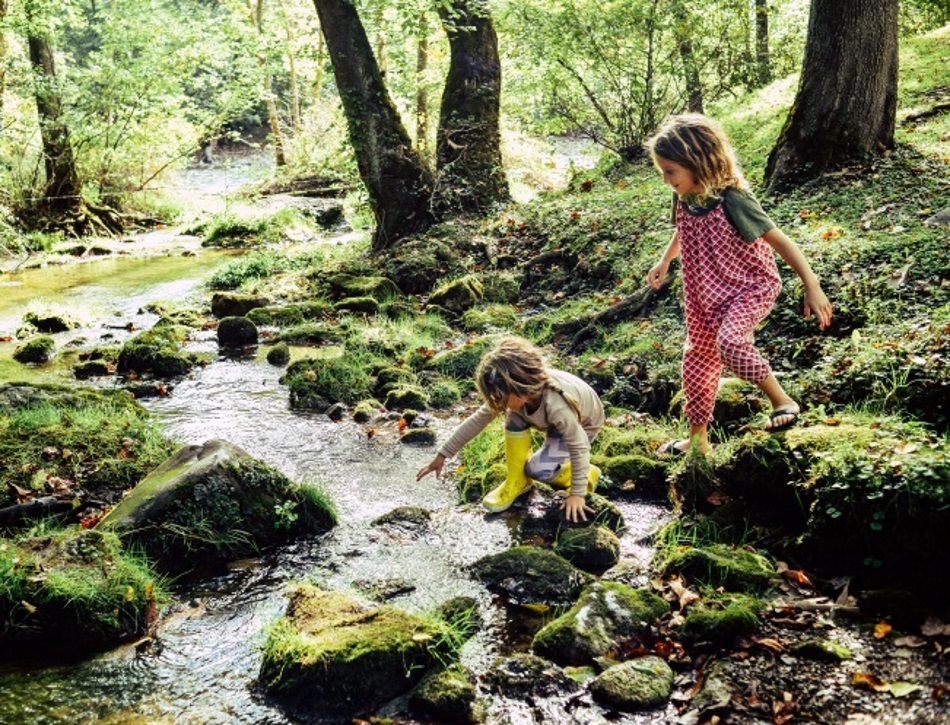
Theo Murphy international scientific meeting organised by Professor Katharine Suding, Professor Richard Hobbs, Professor Eric Higgs, Professor Stephen D Murphy and Professor Jim Harris.
The rapid rise of global restoration initiatives alongside rapid environmental and cultural change has exposed complex questions that straddle the divide between theory and practice. This meeting borught together leaders in ecology, restoration science, and conservation biology to synthesise current understanding and develop a research agenda to address knowledge gaps.
Recorded audio of the presentations will be available on this page after the meeting has taken place.
Enquiries: contact the Scientific Programmes team
Organisers
Schedule
Chair
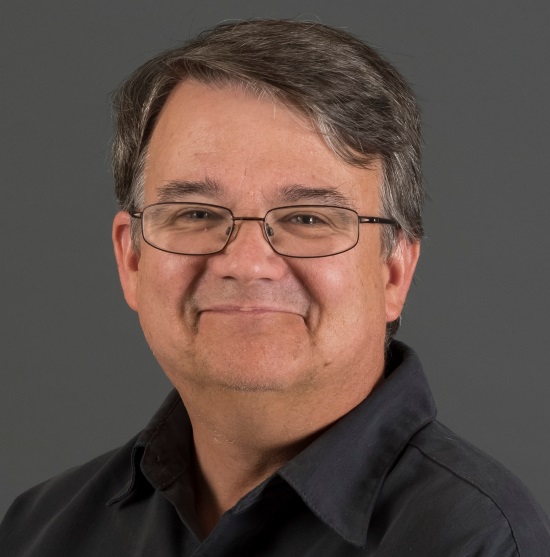
Professor Stephen D Murphy, University of Waterloo, Canada

Professor Stephen D Murphy, University of Waterloo, Canada
Stephen D Murphy is a Professor in the School of Environment, Resources & Sustainability at the University of Waterloo and the Editor-in-Chief of Restoration Ecology. He has mentored 200+ graduate students and 1000+ undergraduate students in classes in the technical, business, ethics, and policy aspects of restoration ecology, ecological restoration, conservation, ecological indicators, and management for private and public lands. He has 300+ peer reviewed contributions (journal articles and conference presentations, books, technical reports for academia, industry, government, the United Nations, NGOs). These have focused on the academic and practitioner realms of restoration ecology, ecological rehabilitation and reclamation, conservation ecology, natural resources management. Steve’s work has recently focused on how rapid ecological changes can be assessed via new technologies like AI and drone-mounted thermal cameras and the larger implications of mass/rapid ecological changes for goal setting and assessment baselines in conservation and restoration ecology.
| 08:00 - 08:20 |
Introduction
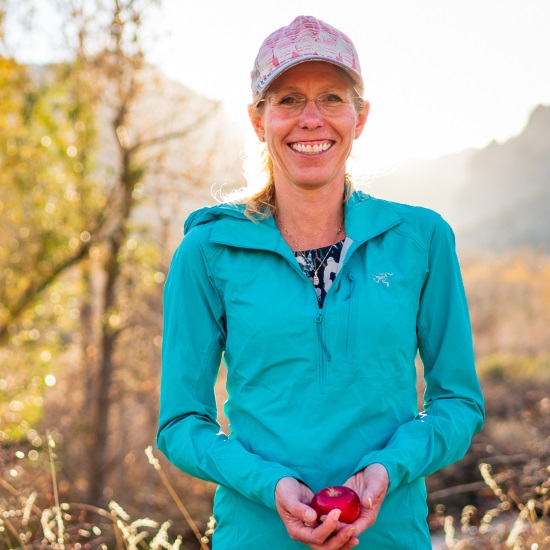
Professor Katharine Suding, University of Colorado Boulder, USA

Professor Katharine Suding, University of Colorado Boulder, USAKatharine Suding is a Professor of Ecology at University of Colorado Boulder. She is a fellow of the American Association for the Advancement of Science and a highly-cited author who has written extensively in the areas of ecosystem dynamics and management, ecological restoration, biodiversity, and conservation. Her current research focuses on managing ecosystems in a rapidly changing world. She received her PhD from the University of Michigan and joined the University of Colorado in 2014 from the University of California Berkeley. At CU, she leads the Niwot Ridge Long-term Ecological Research Program, a large multidisciplinary project aimed at understanding high-elevation mountain systems; the Rangeland Resilience Project involving researchers and ranchers across the Western US; and the Boulder Apple Tree Project, focusing on discovering and preserving historic apple trees. In 2018, she received the Robert H. MacArthur Award from the Ecological Society of America, a biennial prize given by the Ecological Society of America to an ecologist for their pivotal contributions to the field. |
|
|---|---|---|
| 08:20 - 08:35 |
Restoration in a changing world: evolving concepts
Considerable advances have been made in both the science and practice of restoration over the past 2 – 3 decades, and there are many examples of effective restoration projects around the world. However, ongoing human alteration of the basic biophysical settings of our planet (including climate and species distributions and abundances) renders restoration both more urgent and more difficult. There is a race to keep abreast of changing ecologies and what these mean for restoration goals and practices. In addition to the ecological dimensions of change, there is increasing recognition of the importance of social, ethical and value-based issues in restoration. How, then, can the concepts and practice of restoration best adapt to these trends? Responses to this question range from a “steady as she goes” approach through to consideration of a range of different concepts and approaches that challenge and extend existing perspectives. Evolving concepts and approaches include novel ecosystems, re-wilding, species translocations, de-extinction, genetic novelty and resilience-based approaches. The opportunities and threats associated with these and other approaches are topics of current debate. Nevertheless, careful development of the expanding tool-kit for restoration has the potential to greatly increase the efficacy and uptake of restoration as an important element in humanity’s response to rapid global change. 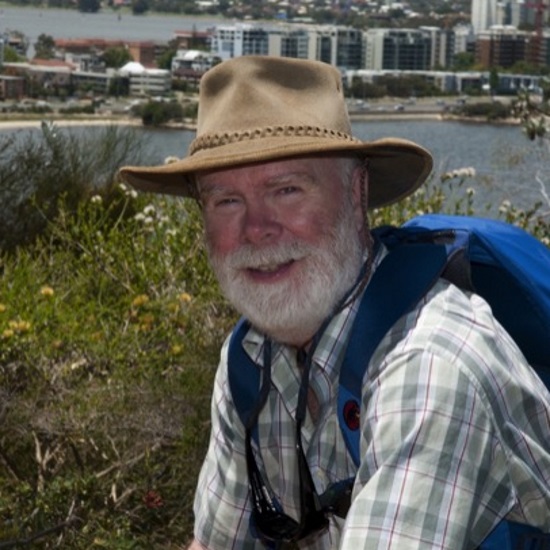
Professor Richard Hobbs, University of Western Australia, Australia

Professor Richard Hobbs, University of Western Australia, AustraliaRichard J Hobbs is Professor and IAS Distinguished Fellow in the School of Biological Sciences at the University of Western Australia, and leads the Ecosystem Restoration and Intervention Ecology Research Group. Originally from Scotland, where he completed his undergraduate and doctoral degrees, he worked as a postdoc at Stanford University before moving to Western Australia in 1984. There, he worked at CSIRO and Murdoch University before moving to UWA in 2009. His work has contributed to conservation biology, landscape ecology and restoration ecology. He focuses on sound empirical field ecology, conceptual and synthetic development, and practical on-ground application to ecosystem management and restoration. He maintains long-term studies in California and Western Australia. His work on restoration ecology, intervention ecology and novel ecosystems aims to provide a framework to guide management and policy, and has also promoted much needed scientific and public debate in this area. |
|
| 08:35 - 08:50 |
Learning about restoration from multiple disciplines
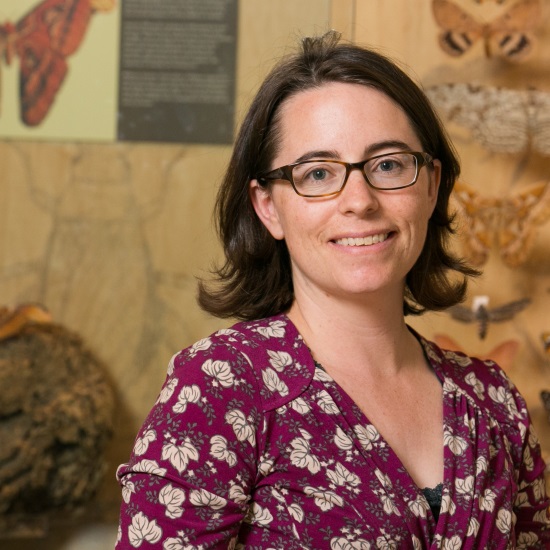
Professor Yvonne Buckley, Trinity College Dublin, Ireland

Professor Yvonne Buckley, Trinity College Dublin, IrelandProfessor Yvonne Buckley is the Professor of Zoology at Trinity College Dublin and an Honorary Professor at the University of Queensland in Australia. She is an Irish Research Council Laureate Fellow and is a Highly Cited Researcher having produced multiple papers with citations in the top 1% across fields (Clarivate, Web of Science). She is Section Head for Faculty of 1000 Population Ecology. Professor Buckley is an ecologist specializing in environmental decision making, natural capital management and population ecology. She leads a team of researchers and students seeking to understand the fundamental drivers of animal and plant population processes in a rapidly changing world. She uses these discoveries to provide support for environmental decisions in the areas of biodiversity conservation, invasive species management and habitat restoration. She is the founding chair of a learned society for ecologists in Ireland, the Irish Ecological Association and is chair of the National Biodiversity Forum providing advice to government on biodiversity strategy. She is also a member of the IUCN Species Survival Commission Climate Change Specialist Group. |
|
| 08:50 - 09:05 |
Toward prediction in restoration ecology
Restoration outcomes vary widely, even when restoration projects are conducted using similar methods across seemingly similar sites. This variability challenges the capacity for restoration practitioners to achieve specific goals and has led some to suggest that restoration outcomes are unpredictable. Yet, it remains unclear the degree to which restoration outcomes are predictable as virtually no tests of this issue exist. We employ concepts from community assembly theory and ecological forecasting to evaluate the causes of variation among restoration projects and the degree to which outcomes are predictable. We do so using a system of prairie grasslands restored by seed sowing onto abandoned agricultural lands in the central United States. Plant communities at these sites have been structured by seed arrival (through seed sowing) and environmental conditions influenced both by management (eg, prescribed fire) and outside of management control (eg, planting year weather and edaphic conditions). These community assembly drivers have led to restored plant communities tracking different trajectories over time, evident both through the identities of species and their traits. Models to forecast restored prairie plant diversity at future time points were surprisingly accurate with knowledge of only a few site attributes that can easily collected by practitioners. Our findings illustrate the merits of applying community assembly theory to interpret variation among restoration outcomes. A remarkable degree of predictability in the outcomes of grassland restoration may be afforded through knowledge of how, when, and where restoration is practiced. 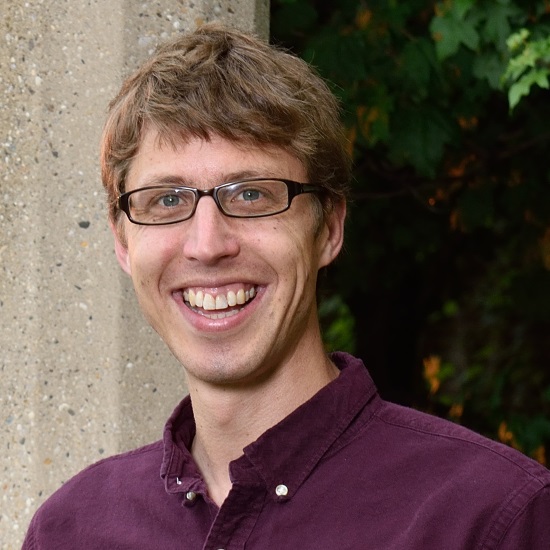
Professor Lars Brudvig, Michigan State University, USA

Professor Lars Brudvig, Michigan State University, USALars Brudvig is an Associate Professor of Plant Ecology at Michigan State University in the Department of Plant Biology. Lars' research investigates how human activities impact the biodiversity and functioning of ecosystems and approaches to their restoration. He approaches these topics through the application of theory to environmental problem solving, broad-scale surveys, experiments, and collaboration with restoration and management practitioners. Current projects focus on temperate and subtropical North American grasslands and savannas. Before joining the faculty at Michigan State, Lars completed a BA at Carleton College (MN), a PhD at Iowa State University, and worked as a postdoctoral researcher at the Savannah River Site in South Carolina. |
|
| 09:05 - 09:20 |
How much is enough? Exploring the need for biodiversity safeguards within restoration for sustainability
Increasingly, aiming for multifunctionality in landscapes is seen as a key way forward to reconcile ecological restoration and human use of landscapes and their ecosystem services. Restoring biodiversity to degraded landscapes offers potentially large win-win opportunities for increasing biodiversity and mitigating climate change whilst also improving local livelhoods. Thus, restoration is poised to become a linchpin tool for addressing many environmental issues simultaneously. The devil is in the detail however: what (which species and habitats?) do we restore where, and how much of it is a good target to reach for what goal? To be as successful as possible, current science policy programmes related to natural climate solutions (such as the Bonn Challenge) need to step back from the forest and include consideration of threatened and highly diverse open grassy biomes as well as forest restoration as key tools for achieving multifunctionality. In the process, trade-offs and synergies in the delivery of different ecosystem services (eg carbon storage, biodiversity, water, albedo, livestock forage) through restoration action need to be clearly assessed at larger landscapes scales. This would allow an integrated land use planning using assessments of different components of the wider landscape, with different habitats being restored (mosaic-style) to allow for true multifunctionality at the landscape scale. Otherwise we risk throwing away vast amounts of biodiversity in the name of tree planting for restoration for climate action on the ground. Biodiversity safeguards (minimum biodiversity goals) are needed to ensure that we go for the best possible biodiversity outcomes despite the socioeconomic and climate mitigation-driven demands on restoration. Including an ecological and socioeconomic consideration of biodiversity and habitat safeguards is the next step of high relevance for research and practice of restoration. 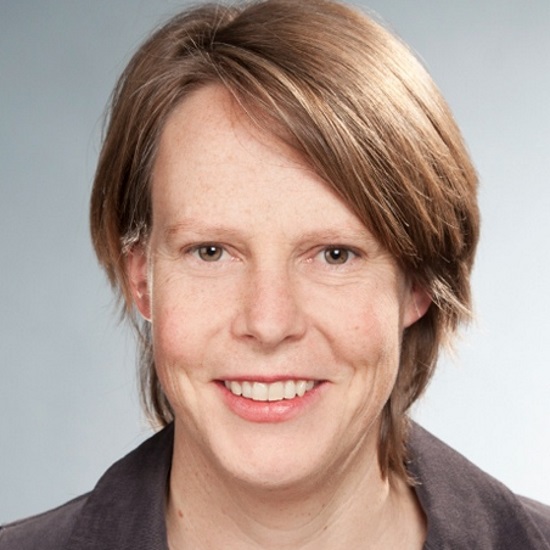
Professor Vicky Temperton, Faculty of Sustainability, Leuphana University Lüneburg, Germany

Professor Vicky Temperton, Faculty of Sustainability, Leuphana University Lüneburg, GermanyVicky Temperton is full professor of ecosystem functioning and services in the institute of ecology at Leuphana University Lüneburg. Embedded in Germany's only sustainability faculty, Vicky is an experimental plant ecologist who tests ecological theories and knowledge for their relevance to the restoration of degraded landscapes, particularly in grasslands. She focuses strongly on the role of species and functional plant diversity during community assembly, in particular the role of history (order of arrival and priority effects) for how ecosystems function and the services they provide. Order of arrival is proving to affect ecosystem functions and services strongly, and could, if well enough understood develop into a successful restoration tool to send communities onto desired trajectories. More recently, the topic of science-policy has emerged as a key focus, in particular the science and transdisciplinarity framing needed to make large scale global restoration platforms such as the Bonn Challenge successful. |
|
| 09:20 - 09:40 | Coffee break | |
| 09:40 - 09:55 |
Restoration baselines - what are the trade-offs? Evidence from long-term ecological records
Over the past decade, calls for “restoration of biodiversity” locally, regionally and globally, have increased. This has been driven partially by the development of nationally and internationally agreed targets to restore small and depleted populations, species and communities as identified through the IUCN Red-List process. Restoration of biodiversity that is important for human well-being also has widespread international agreement (eg CBD Achi targets; IPBES Global Assessment). Global action to restore biodiversity is therefore now high on the political agenda. However, there is often less agreement about what should be restored and how this should be achieved. And much of this comes down to identifying the reason for restoration. For example, if the aim is to restore biodiversity that is iconic yet in decline, then the focus tends to be on restoring to a baseline focused on a particular structure (assemblage, number). In comparison, if aim is to restore biodiversity that is important for water regulation, carbon sequestration etc., then the focus tends to be on restoring species that provide these functional aspects. Finally, if the aim is to restore naturally occurring disturbance regimes (eg through grazing), then the focus tends to be on restoring species that provide this process. Often there is an unstated assumption that a focus on restoration of one of these baselines (structure, function, process) will also bring about positive outcomes in the others. However, this talk will demonstrate, with examples from long-term ecological records, that restoration of one aspect often comes with important trade-offs for the others; information that is essential for current and future restoration plans. 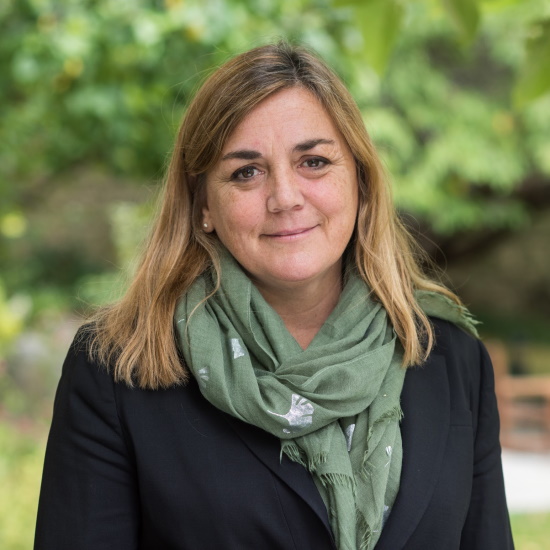
Professor Katherine Willis CBE, University of Oxford and Natural Capital Committee, UK

Professor Katherine Willis CBE, University of Oxford and Natural Capital Committee, UKProfessor Katherine (Kathy) J Willis, CBE, took up the role as Principal of St Edmund Hall on 1 October 2018. Kathy is also Professor of Biodiversity in the Department of Zoology, University of Oxford. Prior to this, between December 2013 and September 2018 Kathy was Director of Science at the Royal Botanic Gardens, Kew, where she spearheaded the launch of Kew’s Science Strategy 2015-2020. She also previously held the Tasso Leventis Chair of Biodiversity at Oxford and was founding Director of the Oxford Martin School Biodiversity Institute. Kathy’s research interests focus on the relationship between long-term ecosystem dynamics and environmental change. She has published extensively being author of over 100 scientific publications, including the landmark book The Evolution of Plants, now in its second edition. She has also written several popular science books (including Plants: From Roots to Riches and Botanicum) and she explored the importance of plants through the BBC Radio 4 series Plants: From Roots to Riches. In August 2015, Kathy was awarded the prestigious Michael Faraday Prize from the Royal Society for her excellent work in science communication and in February 2016 she was appointed to the Natural Capital Committee, an independent advisory body to the UK Government which will take forward the implementation of the new 25-year Environment Plan. Kathy was awarded a CBE in the Queen’s Birthday honours list in June 2018. |
|
| 09:55 - 10:10 |
Challenges for marine restoration in a heavily altered coastal system
Ecological restoration is becoming common practice, but the field of marine restoration is decades behind on terrestrial restoration science and practice. Large-scale restoration commitments for our coastlines are in for a long haul as only 30% of marine restoration attempts are deemed successful, typically costing over 100 times more than terrestrial ecosystem restoration. Hence, the field of marine restoration ecology must quickly advance to bridge this gap and to be able to meet sky-high expectations of conservationists, policy makers and investors. Dr Govers will therefore illustrate the challenges that marine restoration is facing by presenting some examples from her own work in seagrass restoration in the Dutch Wadden Sea. This world heritage area is heavily affected by human activities such as coastline alteration and fixation, intense bottom-disturbing fisheries, gas mining and climate warming. This shared use of a relatively small coastal sea, high expectations of local communities and policy makers, and shifted baselines lead to a precarious position of restoration practice in this area. Here, Dr Govers wants to reach out to the wider restoration science community on how to formulate restoration goals and measures of success and thus manage expectations for ecosystem restoration of heavily altered coastal systems. 
Dr Laura L Govers, University of Groningen and Royal Netherlands Institute for Sea Research (NIOZ), the Netherlands

Dr Laura L Govers, University of Groningen and Royal Netherlands Institute for Sea Research (NIOZ), the NetherlandsMy mission in science is to conduct high quality research to contribute to evidence-based conservation and restoration of coastal ecosystems, with a focus on marine foundation species in intertidal systems. Coastal ecosystems support millions of people in coastal areas all across the world by providing coastal protection services, purifying seawater and mitigating climate change by storing large amounts of carbon. Habitat-building species – seagrasses, salt marsh species, mangroves, shellfish reefs – form the foundation of many coastal ecosystems but are rapidly declining as a result of anthropogenic activities. In my research, I aim to study causes and mechanisms of decline of marine foundation species and their associated communities and to actively try to bridge the gap between science and nature management by contributing to research on restoration and conservation of marine ecosystems and by actively collaborating with nature managers and NGOs. |
|
| 10:10 - 10:25 |
Restoration approaches at different scales
Professor Sutherland will make three main points. Firstly that the intensity and nature of management will depend on the scale of the problem. For many small scale conservation problems we are likely to need intensive management for the foreseeable future but with the objective of them eventually persisting within a matrix of dynamic habitats. Secondly, that the evidence base is insufficiently used in restoration plans and this leads to substantial problems. Finally, that showing the outcome of restoration programmes (typically that there is more biodiversity) often do not improve wider understanding of the most effective ways to restore populations and ecosystems. Instead we should be considering including experiments of specific interventions within the design of restoration projects. 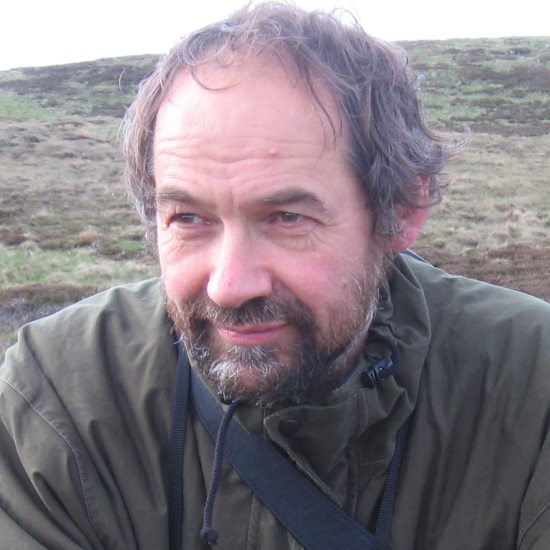
Professor William Sutherland, University of Cambridge, UK

Professor William Sutherland, University of Cambridge, UKBill Sutherland is interested in the links between science and policy. He is particularly interested in improving the efficiency of decision making through the collation and assessment of the evidence related to conservation actions especially through the website www.conservationevidence.com. As well as academic interests he is on Natural England’s science advisory board, was on the National Trust's conservation panel for the maximum 12 years and is the chair of the management committee for Kingfishers Bridge nature reserve. |
|
| 10:25 - 11:30 | Group discussion: Restoration ecology’s complex spatial/temporal dynamics |
Chair
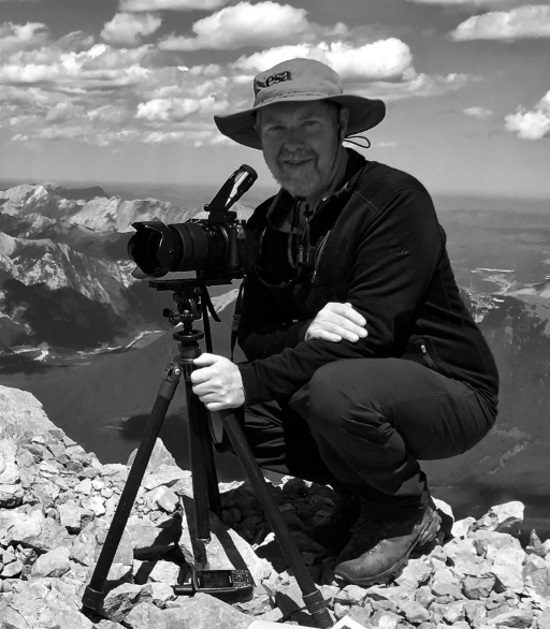
Professor Eric Higgs, University of Victoria, Canada

Professor Eric Higgs, University of Victoria, Canada
Eric Higgs is Professor of Environmental Studies at the University of Victoria. His scholarly work focuses on how to intervene responsibly in ecosystems experiencing rapid change. He explored these themes in Nature By Design (MIT Press, 2003), and later as co-editor of Novel Ecosystems (Wiley, 2013). He leads the Mountain Legacy Project (mountainlegacy.ca), the world’s largest systematic repeat photography project aimed at understanding historical change in Canada’s mountain landscapes. From 2001-2003, he was Chair of the Society for Ecological Restoration. His prior academic appointments were at the University of Alberta and Oberlin College, with visiting appointments at Waterloo, MIT, British Columbia, Western Australia, and Groningen.
| 12:30 - 12:45 |
Human-nature interactions in an urbanising world
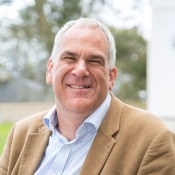
Professor Kevin J Gaston, University of Exeter, UK

Professor Kevin J Gaston, University of Exeter, UKKevin J Gaston is Professor of Biodiversity & Conservation at the University of Exeter. He is a highly cited researcher with a broad range of interests in the field of ecology, currently particularly focussed on common ecology, nighttime ecology and personalised ecology. Much of his recent research has been interdisciplinary, and he is editor-in-chief of the new British Ecological Society journal People and Nature, which publishes work from across research areas exploring relationships between humans and nature. He is involved in a variety of projects that provide environmental research support to external stakeholders, including government, business and third sector organisations. |
|
|---|---|---|
| 12:45 - 13:00 |
The two forest restoration worlds - social science meets restoration ecology
Responding to unprecedented global forest clearing and degradation, governments and international agencies are promoting restoration across vast areas. To produce benefits, at a minimum restoration must be well designed and executed ecologically. But effective restoration also requires local people to engage and benefit from restoration, now and in the future. Despite the need for interdisciplinary research (theoretical and applied) on creating successful, lasting restoration works and policies, the field remains largely siloed between the natural and social sciences. So, what can restoration ecologists learn from the social sciences (and vice versa)? How does the literature on restoration ecology engage with social aspects critical to success (eg, governance, livelihoods, culture), and where are connections lacking? What compromises - spatial, temporal, structural - are required to integrate ecological and social elements in practice? Dr Wilson’s team: 1) conducted a literature synthesis illustrating the degree to which restoration ecology interacts with the social sciences in key fields, and 2) describes select case studies highlighting successful elements of integration. Preliminary results show that the restoration literature is expanding rapidly, but is diverging rather than converging; with greater separation between the social and natural sciences. Many ‘interdisciplinary’ studies integrate fields at the end, rather than co-designing studies. But examples from the field show that when projects are co-designed from the beginning, inevitable compromises are better integrated and long-term outcomes appear promising. Using a systems lens, Dr Wilson presents a framework that draws together these conclusions, illustrates key relationships, and shows what meaningful integration could look like. Findings can help motivate and guide the transdisciplinary work needed for successful forest landscape restoration around the world. 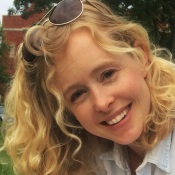
Dr Sarah Wilson, University of Victoria, Canada

Dr Sarah Wilson, University of Victoria, CanadaSarah is a forest geographer with a background in ecology/biology (MSc, BSc) and human geography (PhD). Hailing from flat and windy rural Manitoba, she has been fascinated by tropical forests (and mountains) since learning about them in preschool. She has worked with community-based forest restoration and conservation enterprises in montane cloud forests in Andean Ecuador and the Nepalese Himalaya, and in lowland jungle in Guatemala’s Peten. Her recent postdoc with the University of Michigan focused on understanding and assessing the social and ecological outcomes of community forestry and restoration. As a postdoc, Sarah coordinates and leads papers and projects bridging the natural and social sciences, bringing ecology to the Forest Transition, social science to ecological restoration, and teasing apart the benefits derived from different types of secondary forests for people and nature. Through her research, she aims to identify ways to maximize forest recovery and conservation in rural landscapes while enhancing the sustainability of people’s livelihoods. A recipient of the prestigious L’Oreal Women in Science Mentorship Award, she is also dedicated to environmental and science education with experience in field-based environmental education, designing case studies to teach complex problems, and training educators to teach science. |
|
| 13:00 - 13:15 |
Restoring forests for whom? Aligning ecological and socio-economic outcomes for successful forest landscape restoration
In recent years, there has been a surge of interest worldwide in promoting rapid and widespread reforestation. The Bonn Challenge, for example, has set a goal of restoring 350 million hectares across the planet, roughly 3% of the global ice-free land area, by 2030. But what kind of forest will be restored—and for whom—is not at all clear. Achieving restoration success, especially in complex human-dominated landscapes and regions with high levels of poverty, will require an integrated restoration agenda that supports both ecological integrity and socio-economic development. It also requires a better understanding of trade-offs between conflicting goals, between ecosystem services, between stakeholder preferences, and understanding of how and where multiple goals can best be combined. Drawing on examples from her research in Peru, Malawi, and Ecuador, Dr Rhemtulla will discuss the importance of, challenges to, and opportunities for aligning ecological and socio-economic outcomes to improve restoration success. 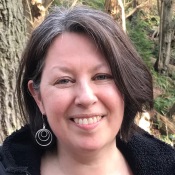
Dr Jeanine Rhemtulla, University of British Columbia, Canada

Dr Jeanine Rhemtulla, University of British Columbia, CanadaJeanine Rhemtulla is Associate Professor in the Department of Forest and Conservation Sciences at the University of British Columbia in Canada. She is a landscape ecologist who works at the interface of forest and agricultural systems to understand the drivers and legacies of land-use change, with the goal of managing these dynamic landscapes to address both ecological outcomes (such as biodiversity and ecosystem function) and socio-economic outcomes (food and livelihoods). Her recent work has focused on how we can implement the ambitious Bonn Challenge global restoration targets to restore habitat while improving local livelihoods. She has worked in temperate and tropical ecosystems in Canada, Peru, Ecuador, India, Malawi, and the USA in collaboration with colleagues from many disciplines and a team of bright and inspiring graduate students. |
|
| 13:15 - 13:30 |
Do we need a minimum viable ecosystem size concept in restoration ecology?
With the global rise of agriculture, livestock husbandry, and forestry, humans have simplified ecosystems by promoting the abundance of focal species groups (seed plants, large herbivores, trees) with a particular benefit to humans. Intensification of land use can be seen as increasing success in excluding negative ecological interactions (competition, predation, herbivory, parasitism) and promoting positive interactions (mutualism, decomposition) for the focal species of production, often possible at an increasingly smaller area. While in population ecology the concept of minimum viable population size has been extensively investigated and is frequently used in conservation and restoration efforts, a related notion of a minimum viable ecosystem size is mostly lacking. Professor Olff will discuss the need for, and steps towards development of this concept, presenting its key elements through a novel food web approach. In this approach, species interactions are ranked not only along a trophic axis but also along an axis of resource quality at the base of the food web. Different species groups interacting in such a network are differentially sensitive to reductions in ecosystem size. Large, mobile species with large home ranges will be relatively sensitive while small and sedentary species (plants, soil fauna) will be relatively insensitive. For small but mobile species (birds, flying insects, often making up most of the biodiversity) the outcome is unclear, as these species often interact strongly with both sedentary and large mobile groups. Formulating a minimum viable ecosystem size for restoration efforts requires therefore a better understanding of the interplay of species along multiple axes of organisation in ecological interaction networks. 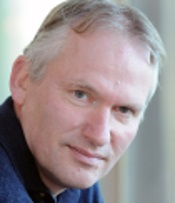
Professor Han Olff, University of Groningen, The Netherlands

Professor Han Olff, University of Groningen, The NetherlandsAfter my PhD graduation in 1992 in Groningen, I worked 10 years in Wageningen as assistant and associate professor. Since 2002 I have been professor of Community and Conservation Ecology at the University of Groningen, the Netherlands. I am interested in the structure and functioning of diverse communities and ecosystems, with special attention on how plants, herbivores, detritivores and predators interact in ecosystems. Working in a range of temperate to tropical ecosystems, and both in marine and terrestrial habitats, I combine experimental work with the advancement of a various types new ecological theory. I frequently use the outcomes of this research for providing advice on nature conservation issues. |
|
| 13:30 - 13:50 | Tea break | |
| 13:50 - 14:05 |
Policy and implementation learning identified through natural capital planning activities in the Oxford Cambridge Arc
National government and local authorities have recognised the Oxford Cambridge Arc as an area of significant economic strength with the potential to become a world-leading economic area. This will require significantly more homes and substantial additional infrastructure in the Arc.The Arc is valued for its wildlife, natural places and local greenspaces. They play critical roles in providing the needs of people and businesses for clean water and air, flood regulation, healthier lifestyles and climate change adaptation. They also create attractive, resilient and productive places for people to live and work in. There is a need for a bold, strategic Arc-wide plan for the environment, natural capital and biodiversity which has the same status as the industrial, housing and transport strategies. This must ensure the protection and enhancement of the existing environment. The environment, natural capital and biodiversity should also be fully integrated within the other strategies as well as the health and wellbeing plans. To be effective this will require clear governance and accountability arrangements related to the environment in all these workstreams. A local natural capital plan is being progressed by government agencies with widespread local stakeholder engagement. It builds on a natural capital investment plan scoping project carried out by the local nature partnerships. This work identified the need for agreed methodologies for baseline assessments and for concepts such as net environmental gain. The design, implementation and policy implications of the work programmes outlined above will be discussed. 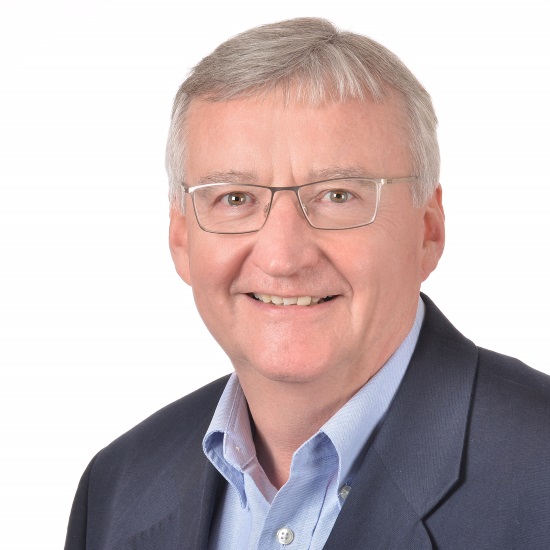
Professor Paul Leinster CBE, Cranfield University, UK

Professor Paul Leinster CBE, Cranfield University, UK |
|
| 14:05 - 14:20 |
Resilience ecology is restoration for a changing world
Classical restoration theory rests on assumptions of environmental stationarity, but current rapid changes in Earth systems are compelling an evolution of the original restoration model. Species have evolved a variety of mechanisms for adapting to climatic variation over a range of time scales; however, the current pace of change may exceed the adaptive capability of many species in their current geographic distributions. Higher-order ecological disturbances, such as wildfires and insect outbreaks, compound the effects of climate stress, and often operating at time scales many times faster than even the accelerated climate velocity of the current century. Such disturbances are transient processes that can trigger significant and irreversible environmental, demographic and ecosystem change. Interactions of climate change and elevated levels of disturbance constitute the greatest challenge for restoration of terrestrial ecosystems now and many decades into the future. A consensus is emerging within the restoration field that a focus on ecological resilience, rather than strict interpretation of historical reference conditions, may be necessary to maintain and enhance the adaptive capacity of many species, communities, and ecosystems. Nonetheless, departures from historical references should be undertaken cautiously and incrementally, respecting the importance of ecological legacies, refugia, species interactions, and unexpressed genetic variation. We can decompose ecological responses to climate and disturbance by applying a scaled probability model across a spectrum from persistence and recovery to system reorganisation. These processes comprise the elements of a theorem of ecological resilience relevant to the formidable challenges in a rapidly changing world. 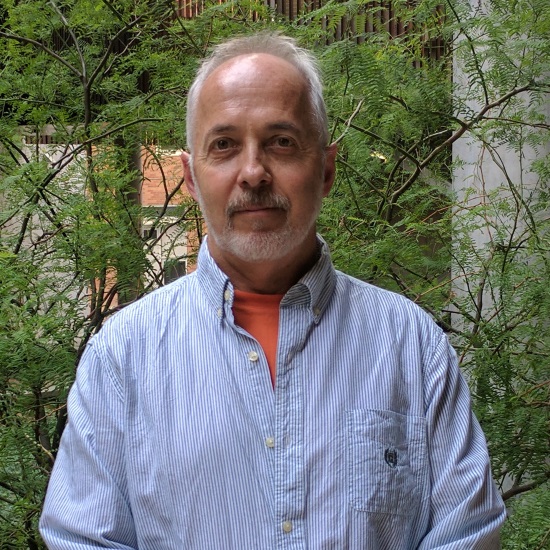
Professor Don Falk, University of Arizona, USA

Professor Don Falk, University of Arizona, USADon Falk’s research focuses on fire history, fire ecology, and the adaptation of restoration ecology to resilience in a changing world. He is a Fellow of the American Association for the Advancement of Science (AAAS), and has received a Fulbright Short-Term Scholar award, the Ecological Society of America’s Deevey Award, and the Udall Faculty Fellowship in Public Policy. Don was co-founder and Executive Director of the Center for Plant Conservation, originally at Arnold Arboretum of Harvard University and now at San Diego Zoo Global; he served subsequently as the first Executive Director of the Society for Ecological Restoration. His books include Genetics and Conservation of Rare Plants, Foundations of Restoration Ecology (now in Second Edition) and The Landscape Ecology of Fire. Don was a delegate to the 2015 UN climate summit in Paris and lead the University’s undergraduate degree program in Global Change Ecology and Management. Don holds degrees from Oberlin College, Tufts University, and the University of Arizona. |
|
| 14:20 - 14:35 |
Dryland restoration: Transdisciplinary research and the SDGs
Drylands cover c.40% of the global land surface and face numerous urgent challenges. Biodiversity loss, climate change and land degradation combine with high population growth, limited employment opportunities, high levels of poverty and poor governance, resulting in food insecurity, lack of livelihood options and sometimes even conflict and unrest. Efforts to address these challenges are supported by the post-2015 development agenda. Sustainable Development Goal 15 ‘Life on Land’ commits to “Protect, restore and promote sustainable use of terrestrial ecosystems, sustainably manage forests, combat desertification, halt and reverse land degradation and halt biodiversity loss”. This presentation considers what SDG15 means in practice. It examines ‘what works’ in tackling problems of land degradation and desertification, with particular focus on transdisciplinary approaches to prevent and reduce degradation, as well as in restoring degraded land. It establishes the importance of systems approaches in unpacking interactions in livelihood portfolios and value chains; in traversing temporal and spatial scales, stakeholders, sectors and ways of knowing; and in sharing knowledge, learning and experience to empower. It argues that restoration science needs to move beyond integrating science with indigenous, traditional and local knowledge, to build partnerships and co-produce restoration solutions. To achieve this, scientists need to meaningfully engage with transdisciplinarity. 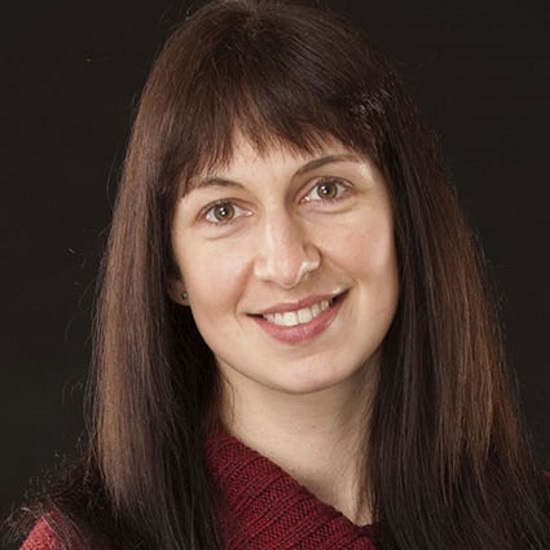
Professor Lindsay Stringer, University of Leeds, UK

Professor Lindsay Stringer, University of Leeds, UKLindsay is Professor in Environment and Development at the Sustainability Research Institute, School of Earth and Environment, University of Leeds. Her research interests broadly encompass environment and international development, and consider human-environment interactions through a systems approach. Her research projects focus on: socio-ecological resilience of mangrove systems in Vietnam; the costs of action and inaction on land degradation in Rwanda and Somalia; peatland restoration in Indonesia; and livelihoods and rural development in Brazil. Lindsay was awarded a Philip Leverhulme Prize for her work on sustainability in the world’s drylands and is a Royal Society Wolfson Research Merit Award holder. She was coordinating lead author for the IPBES Africa regional assessment and lead author on the IPBES Land degradation and restoration assessment. She is lead author for both the IPCC special report on land use and climate change, and the IPCC 6th assessment report. |
|
| 14:35 - 15:45 | Group discussion: shifting human baselines | |
| 16:00 - 17:15 | Poster session |
Chair
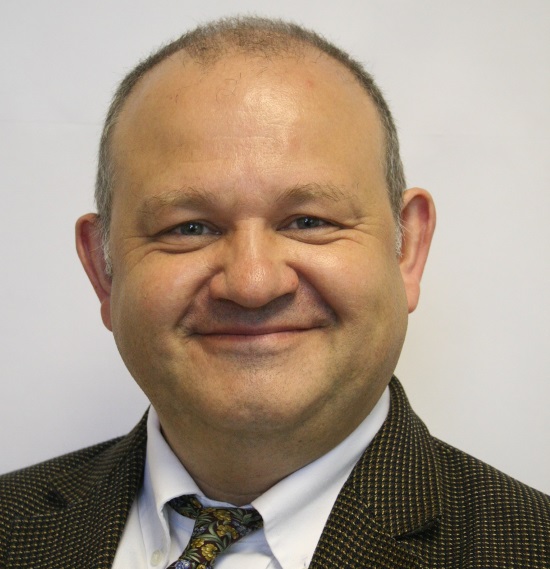
Professor Jim Harris, Cranfield University, UK

Professor Jim Harris, Cranfield University, UK
Professor Jim Harris, Chair in Environmental Technology: Jim’s research and teaching interests are wide - ranging from microbial ecology and how the diversity of the microbiota and their spatio-temporal distribution affect ecosystem processes, through to ecological restoration, systems ecology, agro-ecosystems, natural capital and ecosystem services, policy implications and ecosystem resilience. His pioneering work in the development and application of soil microbial community characterisation methodology, ranging from catabolic profiling of carbon utilisation, PLFA analysis, resilience, and the thermodynamic efficiency of soil systems, has been set in a broad theme of land degradation, restoration and reclamation, and land-use monitoring in general. It has covered everything from providing objective ecosystem measures of the success of restoration programmes, through the interaction of governance and science, setting conceptual frameworks for restoration ecology, policy, to educational initiatives. He has applied his fundamental work widely: in disturbed landscapes, urban areas, semi-natural and agricultural systems; restoration ecology, soil health and resilience, and in the quantitative assessment of ecosystem goods and services.
| 08:00 - 08:20 |
Summary of previous day and introduction to ‘Shifting environmental baselines’ session
Professor Jim Harris, Chair in Environmental Technology: Jim’s research and teaching interests are wide - ranging from microbial ecology and how the diversity of the microbiota and their spatio-temporal distribution affect ecosystem processes, through to ecological restoration, systems ecology, agro-ecosystems, natural capital and ecosystem services, policy implications and ecosystem resilience. His pioneering work in the development and application of soil microbial community characterisation methodology, ranging from catabolic profiling of carbon utilisation, PLFA analysis, resilience, and the thermodynamic efficiency of soil systems, has been set in a broad theme of land degradation, restoration and reclamation, and land-use monitoring in general. It has covered everything from providing objective ecosystem measures of the success of restoration programmes, through the interaction of governance and science, setting conceptual frameworks for restoration ecology, policy, to educational initiatives. He has applied his fundamental work widely: in disturbed landscapes, urban areas, semi-natural and agricultural systems; restoration ecology, soil health and resilience, and in the quantitative assessment of ecosystem goods and services. 
Professor Jim Harris, Cranfield University, UK

Professor Jim Harris, Cranfield University, UKProfessor Jim Harris, Chair in Environmental Technology: Jim’s research and teaching interests are wide - ranging from microbial ecology and how the diversity of the microbiota and their spatio-temporal distribution affect ecosystem processes, through to ecological restoration, systems ecology, agro-ecosystems, natural capital and ecosystem services, policy implications and ecosystem resilience. His pioneering work in the development and application of soil microbial community characterisation methodology, ranging from catabolic profiling of carbon utilisation, PLFA analysis, resilience, and the thermodynamic efficiency of soil systems, has been set in a broad theme of land degradation, restoration and reclamation, and land-use monitoring in general. It has covered everything from providing objective ecosystem measures of the success of restoration programmes, through the interaction of governance and science, setting conceptual frameworks for restoration ecology, policy, to educational initiatives. He has applied his fundamental work widely: in disturbed landscapes, urban areas, semi-natural and agricultural systems; restoration ecology, soil health and resilience, and in the quantitative assessment of ecosystem goods and services. |
|
|---|---|---|
| 08:20 - 08:35 |
Restoration in changing times
We are in a time of unprecedented change at both local and global scales. Environmental variability and change is now the norm. Drivers such as urbanisation are rapidly stressing ecosystems and this is compounded by the slower force of climate change. At the same time, socio-political changes that challenge environmental policies are occurring in many countries. Given these changes, Dr Palmer argues that for ecological restoration to ensure natural systems and their benefits to people are maintained, the path forward is to restore systems for self-sustainability. This does not pre-suppose a specific state for an ecosystem – that is a social decision. However, the decision should be bounded by two requirements which are grounded in current science and scientific principles. First, restorations are designed to recover the biophysical and ecological processes and features required for the potential provision of desired ecosystem services. Second, designs must not assume perpetual human maintenance. Natural resource management actions that do not meet these two criteria may be very important but, to avoid unintended consequences, policies and laws must not conflate them with ecological restoration. Minimum standards to ‘qualify’ as restoration (eg, for regulatory, tax credits, or government funding purposes) must include evidence these two criteria are met and that the restored system is self-sustaining over specified time period specific to a region and social setting; or, that the system is designed like others (in the setting) previously shown to be self-sustaining. Implementation of these recommendations requires extensive scientific knowledge and advances in the science and practice of restoration. 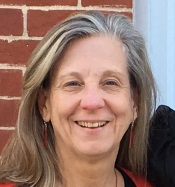
Dr Margaret Palmer, University of Maryland, USA

Dr Margaret Palmer, University of Maryland, USAMargaret A Palmer is a Distinguished University Professor at the University of Maryland. Her research focuses on the hydrology and ecology of freshwater ecosystems. She is an international leader in aquatic restoration science, has >175 peer-reviewed articles and led the latest edition of the widely used text Foundations of Restoration Ecology. She is an Editorial Advisor for Science magazine, serves on the Water Science & Technology Board of the National Academies of Science, and is Director of National Science Foundation’s “National Socio-Environmental Synthesis Center”. She is an elected Fellow of the American Association for the Advancement of Science, the Ecological Society of America (ESA), and the Society for Freshwater Science (SFS). Among her awards: Aldo Leopold Leadership Fellowship, SFS Award of Excellence in Science, ESA Sustainability Science Award, and Ruth Patrick Award from the Association for the Sciences of Limnology and Oceanography. She has been invited speak in diverse settings including regional and international forums, science-diplomacy venues (eg in North Korea), and popular outlets such as the Stephen Colbert show. |
|
| 08:35 - 08:50 |
Applying complex systems science to building sustainable and resilient landscapes
Human health and well-being are intricately linked to the qualities of the landscapes in which we live, and in particular to their provisioning of essential ecosystem services. A central challenge to attaining sustainability in a multifunctional landscape is to conciliate competing demands for land use. Dr Parrott argues that land use planning that optimises the production of ecosystem services, and maintains human demand for these services within the biocapacity of the landscape, will lead to the most sustainable landscapes. In this context, landscape resilience can be defined as the difference between ecosystem services provisioning and human demand. A complex systems management approach, that takes a systems view of a landscape as a coupled human-environment system, may be the best way to achieve sustainable and resilient landscapes. 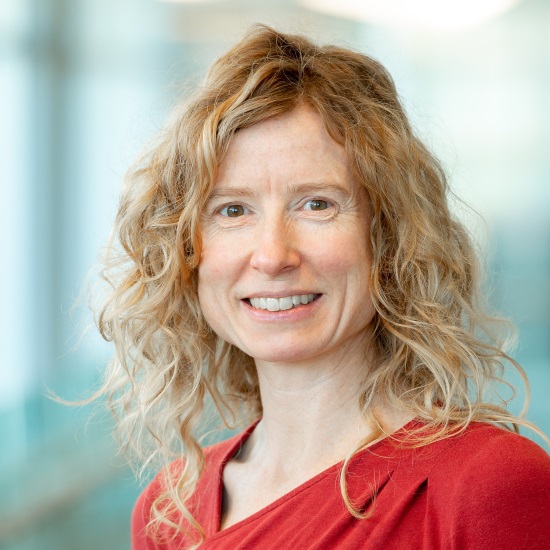
Dr Lael Parrott, The University of British Columbia, Canada

Dr Lael Parrott, The University of British Columbia, CanadaDr Lael Parrott is a Professor in Sustainability and Director of the Okanagan Institute for Biodiversity, Resilience, and Ecosystem Services at The University of British Columbia, Okanagan Campus. Dr. Parrott leads an internationally recognized research program in modelling and characterising contemporary regional landscapes and ecosystems as complex human-environment systems. She promotes a holistic, complex systems vision of managing land and water resources at the landscape scale. She has extensive experience in leading multipartite groups to share this vision to find sustainable management solutions that reconcile ecological, societal and economic objectives. Photo credit is to UBC communications. |
|
| 08:50 - 09:05 |
Historical conditions, species pools, and functional traits: a new method for setting restoration targets
Restoration ecologists have an innate desire to restore what has been lost. Our first instinct is to use historical reference conditions as empirical benchmarks for restoration success. However, historical reference conditions in many regions are undefinable and are increasingly viewed as irrelevant under climate change. The important question to ask is why were species dominant historically? The answer, presumably, is because they exhibited traits that conferred high fitness in those environments. As the environment changes, optimal traits may shift, making historical trait distributions less fit and ill-suited for the task. Restoring resilient ecosystems in an era of rapid environmental change requires a flexible framework for selecting assemblages of species based on functional traits. However, current trait-based models have been limited to algorithms that select species assemblages that only converge on specified average trait values, and could not accommodate the common desire among restoration ecologists to generate functionally diverse assemblages. In this talk Dr Laughlin will describe this new method for designing ecological communities based on functional trait profiles and discuss how this alternative approach might lead to greater restoration success in a changing world. The quantitative selection of species based on their functional traits for ecological restoration and experimentation must be both rigorous and accessible to practitioners. The selectSpecies R function provides ecologists with an easy-to-use open-source solution to objectively derive species assemblages based on their functional traits. 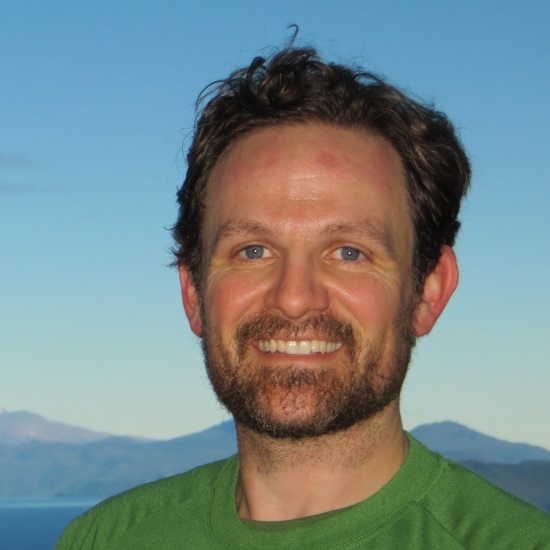
Dr Daniel Laughlin University of Wyoming, USA

Dr Daniel Laughlin University of Wyoming, USADaniel Laughlin is an Associate Professor in the Botany Department at the University of Wyoming. He received his doctorate in Forest Science from Northern Arizona University in 2009, served as a Senior Lecturer at the University of Waikato in New Zealand from 2011-2017, then moved back to the Rocky Mountains to work in Laramie, Wyoming in 2017. Daniel has studied the restoration of wet meadows, prairies, wetlands, temperate forests, temperate rainforests, and montane forests. He is currently working to develop new methods for setting restoration targets based on functional traits. |
|
| 09:05 - 09:20 |
Mapping the best opportunities for tropical forest restoration
The need for restoring tropical forest landscapes far exceeds the human and financial resources available and also presents trade-offs with crop and forestry production. Landowners, organisations, and governments face major financial and technical challenges in meeting obligations and commitments to restore forest cover and to comply with national or international policies, mandates, and conventions. At issue is the need to prioritise areas and restoration approaches that maximize the effectiveness and desired outcomes of forest restoration while minimising costs, risks of failure and other negative trade-offs. One highly effective way to minimise restoration costs is to harness nature's potential to regenerate forests or to assist the process, greatly reducing the implementation costs compared to full tree planting and enhancing the recovery of native forest biodiversity. Estimating restoration costs and benefits requires a spatially explicit approach, as the likelihood of natural regeneration is not uniformly distributed within mosaic landscapes. Two new studies directly evaluate and map the most cost-effective opportunities for forest restoration. At the regional scale, natural regeneration potential was assessed within 75.5 M ha of deforested lands in the Brazilian Atlantic Forest. An estimated 2.8 M ha could naturally regenerate by 2035, and a further 18.8 M ha could be restored using assisted regeneration methods, thereby reducing implementation costs by US$ 90.6 billion (77%) compared to tree planting. At the global scale, we identified 101 M ha of “restoration hot-spots” in tropical rainforest biomes where forest restoration is expected to bring multiple benefits and where proxies for feasibility are highest. 
Dr Robin Chazdon, The University of Connecticut, USA

Dr Robin Chazdon, The University of Connecticut, USA |
|
| 09:20 - 09:40 | Coffee break | |
| 09:40 - 09:55 |
Constraints and advances in the restoration reference concept
In modern restoration ecology, the reference ecosystem has become a cornerstone of both science and practice. Since the concept’s inception, however, there has been widespread acknowledgement of the profound ecological challenges to using reference communities. Long-standing issues with selecting reference communities have often arisen around altered, and altering, environmental conditions, and recent recommendations have moved away from defining an appropriate reference as the historical community. Rather, information on the historical ecosystems is often complemented by data on contemporary native community types and can be combined with projections of climate change and range shifts. Though these more conceptual definitions of reference communities may provide more flexibility in facing modern challenges, they may also be difficult to measure and apply in realistic restoration settings. There is a need to understand how the reference concept is currently used in restoration science, and to provide a clear framework of how ecosystem references can be defined and utilised moving forward. With careful development, the reference community concept can remain an important tool in outlining targets for restoration activities globally. 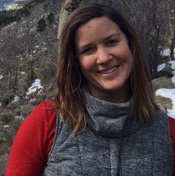
Dr Nancy Shackelford, University of Colorado Boulder, USA

Dr Nancy Shackelford, University of Colorado Boulder, USADr Nancy Shackelford is a restoration ecologist working in the Suding Lab at Colorado University, Boulder. She received her PhD in British Columbia studying ecosystem resilience and restoration in oak-savanna systems, and her Masters degree in Western Australia studying native woody species encroachment and fire management. Her work is focused on blending complex ecological science with practical restoration techniques. She works in any ecosystem that she finds, but her heart is always in the grassland. |
|
| 09:55 - 10:10 |
Restoring functioning communities
Global environmental changes create an urgent need to restore functioning ecosystems. Approaches that incorporate species’ functional traits (ie measures of functional diversity) are crucial in linking biodiversity with ecosystem functioning. However, it remains unclear whether restoration efforts that are used to safeguard biodiversity also promote the recovery of functional diversity. We conducted a meta-analysis of 30 restoration projects and tested whether restoration leads to an increase in functional diversity. Overall, restoration appeared to improve species and functional diversity in studies that used space-for-time substitution. However, the studies that were best able to detect a difference (ie replicated longitudinal data) did not find sustained benefits of restoration relative to controls for any measure of functional diversity, suggesting that the positive results found in space-for-time data may have been an artefact of the inability of the study design to control for regional changes across all sites. Further, active restoration measures were no more effective than passive measures at restoring species diversity or functional diversity. Our findings highlight the indispensability of including negative degraded controls in ongoing monitoring to distinguish the consequences of restoration efforts from unassisted temporal changes. Additionally, the failure of active restoration to outperform passive restoration suggests that allocating resources towards less intensive measures over larger areas may be a successful strategy to optimise gains for functional biodiversity. 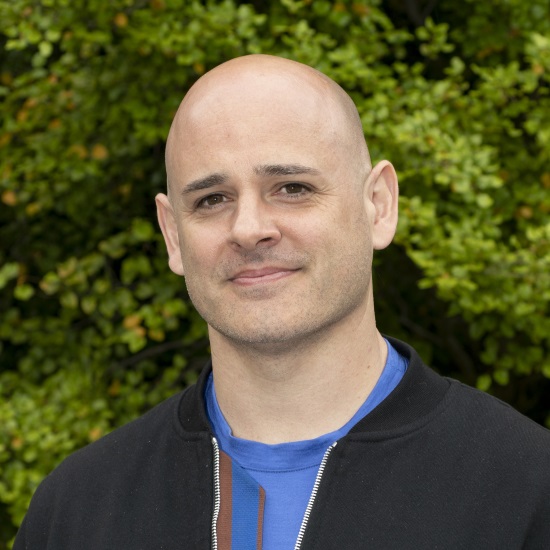
Professor Jason Tylianakis, University of Canterbury, New Zealand

Professor Jason Tylianakis, University of Canterbury, New ZealandJason's research examines how communities of interacting species respond to environmental changes. In particular, he is interested in how the architecture of interaction networks (such as food webs or pollination networks) comes to exist, and how it responds to environmental drivers. He is also interested in the conditions under which biodiversity loss has the greatest impact on ecosystem functioning and services, and in searching for win-win scenarios to balance agricultural production and conservation. In some cases, this requires knowledge of how species traits and the local environment jointly shape the structure of interaction networks such as food webs, and how this structure affects processes at the entire community level. He addresses these questions using a variety of systems (plants, insect herbivores, parasitoid-host systems, plant-mycorrhizal associations) and approaches (field observations, field and lab experiments, meta-analysis). |
|
| 10:10 - 11:10 | Group discussion: shifting environmental baselines | |
| 11:10 - 11:30 |
Setting the agenda and arrangements for the afternoon sessions

Professor Stephen D Murphy, University of Waterloo, Canada

Professor Stephen D Murphy, University of Waterloo, CanadaStephen D Murphy is a Professor in the School of Environment, Resources & Sustainability at the University of Waterloo and the Editor-in-Chief of Restoration Ecology. He has mentored 200+ graduate students and 1000+ undergraduate students in classes in the technical, business, ethics, and policy aspects of restoration ecology, ecological restoration, conservation, ecological indicators, and management for private and public lands. He has 300+ peer reviewed contributions (journal articles and conference presentations, books, technical reports for academia, industry, government, the United Nations, NGOs). These have focused on the academic and practitioner realms of restoration ecology, ecological rehabilitation and reclamation, conservation ecology, natural resources management. Steve’s work has recently focused on how rapid ecological changes can be assessed via new technologies like AI and drone-mounted thermal cameras and the larger implications of mass/rapid ecological changes for goal setting and assessment baselines in conservation and restoration ecology. |
Chair

Professor Richard Hobbs, University of Western Australia, Australia

Professor Richard Hobbs, University of Western Australia, Australia
Richard J Hobbs is Professor and IAS Distinguished Fellow in the School of Biological Sciences at the University of Western Australia, and leads the Ecosystem Restoration and Intervention Ecology Research Group. Originally from Scotland, where he completed his undergraduate and doctoral degrees, he worked as a postdoc at Stanford University before moving to Western Australia in 1984. There, he worked at CSIRO and Murdoch University before moving to UWA in 2009. His work has contributed to conservation biology, landscape ecology and restoration ecology. He focuses on sound empirical field ecology, conceptual and synthetic development, and practical on-ground application to ecosystem management and restoration. He maintains long-term studies in California and Western Australia. His work on restoration ecology, intervention ecology and novel ecosystems aims to provide a framework to guide management and policy, and has also promoted much needed scientific and public debate in this area.
| 12:30 - 13:40 | Breakout on critical agendas for future research and policy implementation |
|---|---|
| 13:40 - 14:00 | Tea break |
| 14:00 - 14:30 | Summary from breakout discussion |
| 14:30 - 15:45 | Group Discussion: What Does a New Restoration Framework Entail? |
| 15:45 - 16:00 |
Closing remarks

Professor Katharine Suding, University of Colorado Boulder, USA

Professor Katharine Suding, University of Colorado Boulder, USAKatharine Suding is a Professor of Ecology at University of Colorado Boulder. She is a fellow of the American Association for the Advancement of Science and a highly-cited author who has written extensively in the areas of ecosystem dynamics and management, ecological restoration, biodiversity, and conservation. Her current research focuses on managing ecosystems in a rapidly changing world. She received her PhD from the University of Michigan and joined the University of Colorado in 2014 from the University of California Berkeley. At CU, she leads the Niwot Ridge Long-term Ecological Research Program, a large multidisciplinary project aimed at understanding high-elevation mountain systems; the Rangeland Resilience Project involving researchers and ranchers across the Western US; and the Boulder Apple Tree Project, focusing on discovering and preserving historic apple trees. In 2018, she received the Robert H. MacArthur Award from the Ecological Society of America, a biennial prize given by the Ecological Society of America to an ecologist for their pivotal contributions to the field. |
